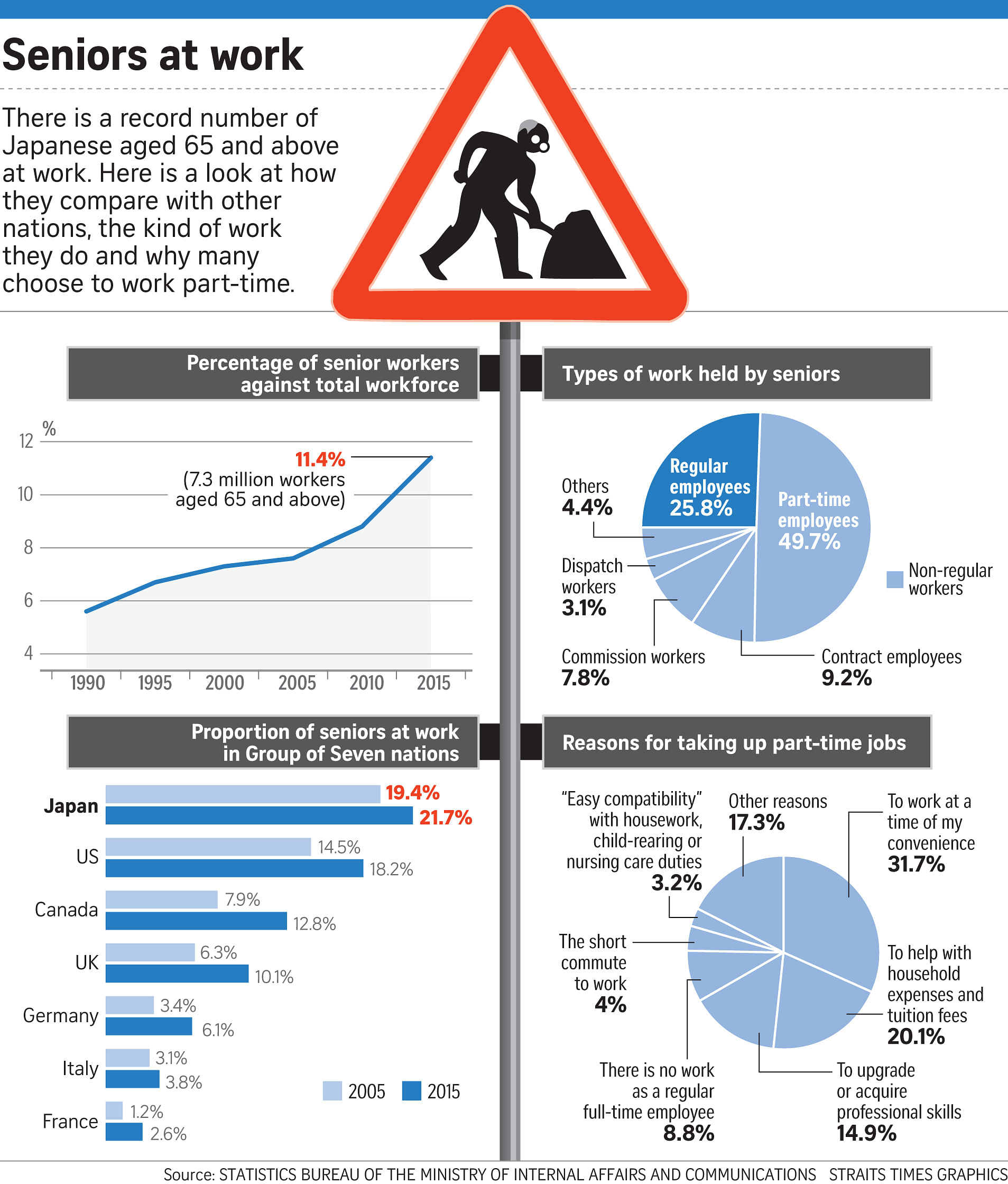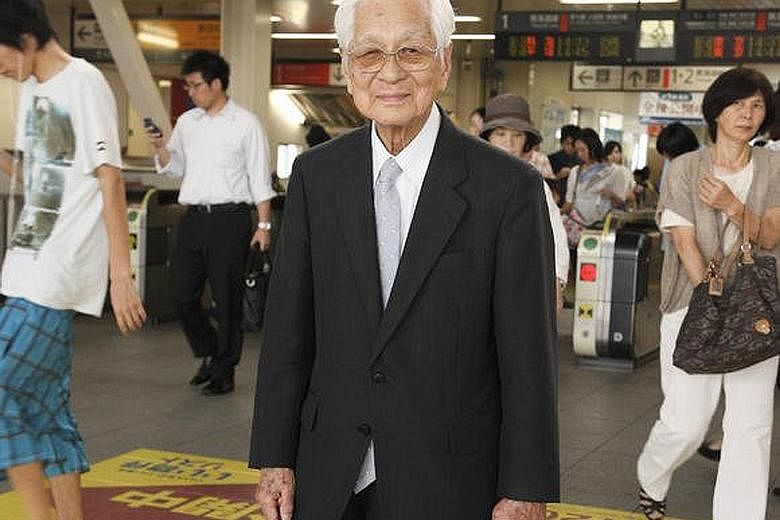As Japan greys, so does its workforce.
The elderly - defined by the Japanese government as those aged 65 and above - made up a record 11.4 per cent of the workforce last year, according to a government report released to mark Japan's Respect For The Aged Day today, which is a public holiday.
Their number - 7.3 million - comprises about a fifth of Japan's elderly population, the Statistics Bureau said yesterday.
And as of last Thursday, Japan has 34.6 million elderly people, who account for 27.3 per cent of the total population of 126.9 million, the bureau added.
Local media has, in recent months, featured the country's ageing workers, including 104-year-old Fukutaro Fukui, who retired only three years ago from his job as a clerk at a lottery sales broker.
Mr Fukui, who was one of the oldest salarymen until his retirement, told the Nikkei Asian Review: "It does not matter what we achieved or if we were promoted. I have worked just because it is my instinct."
Employers like nursing care provider Care Twentyone have also championed their older workers. Care Twentyone president Taira Yoda reportedly said senior workers "have the capacity to do more".

-
11.4 Percentage of Japanese workers who were aged 65 and above last year.
27.3 Percentage of Japan's population who are classified as elderly.
81 Percentage of Japanese companies which put older workers on contracts that come with steep pay cuts, as a way to circumvent a labour guideline on the continued employment of such workers.
Japan, as a debt-ridden society whose economy is stagnating and whose population has seen seven straight years of decline, has been struggling with questions on active ageing.
One such issue that has faced much resistance is the delaying of the retirement age.
Guidelines amended in 2013 propose that firms hire their workers until 65 years old - up from the previous ceiling of 60 - if they wish to continue working.
This would be a costly measure for most firms in Japan where workers are paid based on seniority.
A Labour Ministry survey found that as many as 81 per cent of firms circumvented the guideline by putting their older workers on contracts that come with steep pay cuts.
The Statistics Bureau said that of the 7.3 million elderly people working last year, three-quarters held part-time or contract jobs. Many are increasingly hired in the healthcare and welfare, and the wholesale and retail industries.
Some 30 per cent of all elderly men and 15 per cent of all elderly women are in the workforce. They say they choose to work on a part-time basis because the arrangement offers them flexibility, and to help with household expenses.
Dr Emi Kataoka, a sociologist at Tokyo's Komazawa University, told The Straits Times that the report seemed overly optimistic.
While the report said elderly households have, on average, savings of 24.3 million yen (S$325,000) as of last year, she noted issues such as a growing wealth divide and the many asset-rich but cash-poor elderly people in Japan.
What this means, she said, is that many elderly people might feel compelled to stave off retirement to continue earning their keep.
And although Japan has a pension system, she stressed that this is "independent of the elderly's quality of life" because much of it could be deducted to pay long-term care insurance premiums.
Furthermore, with as many as 5.6 million elderly people living alone, there could be implications such as loneliness, she added.
The latest data also showed the number of centenarians rising by 4,124 from a year ago to a high of 65,692 this month. Only one in seven of them is male.
Japan has a tradition of presenting people who celebrate their 100th birthday with a silver cup on the Respect For The Aged Day.
But because of rising costs, the cups this year are silver-plated instead of being made from the usual sterling silver. This halves the cost of each cup, according to public broadcaster NHK last week.
The latest move comes seven years after the government started making the cups smaller in 2009.

